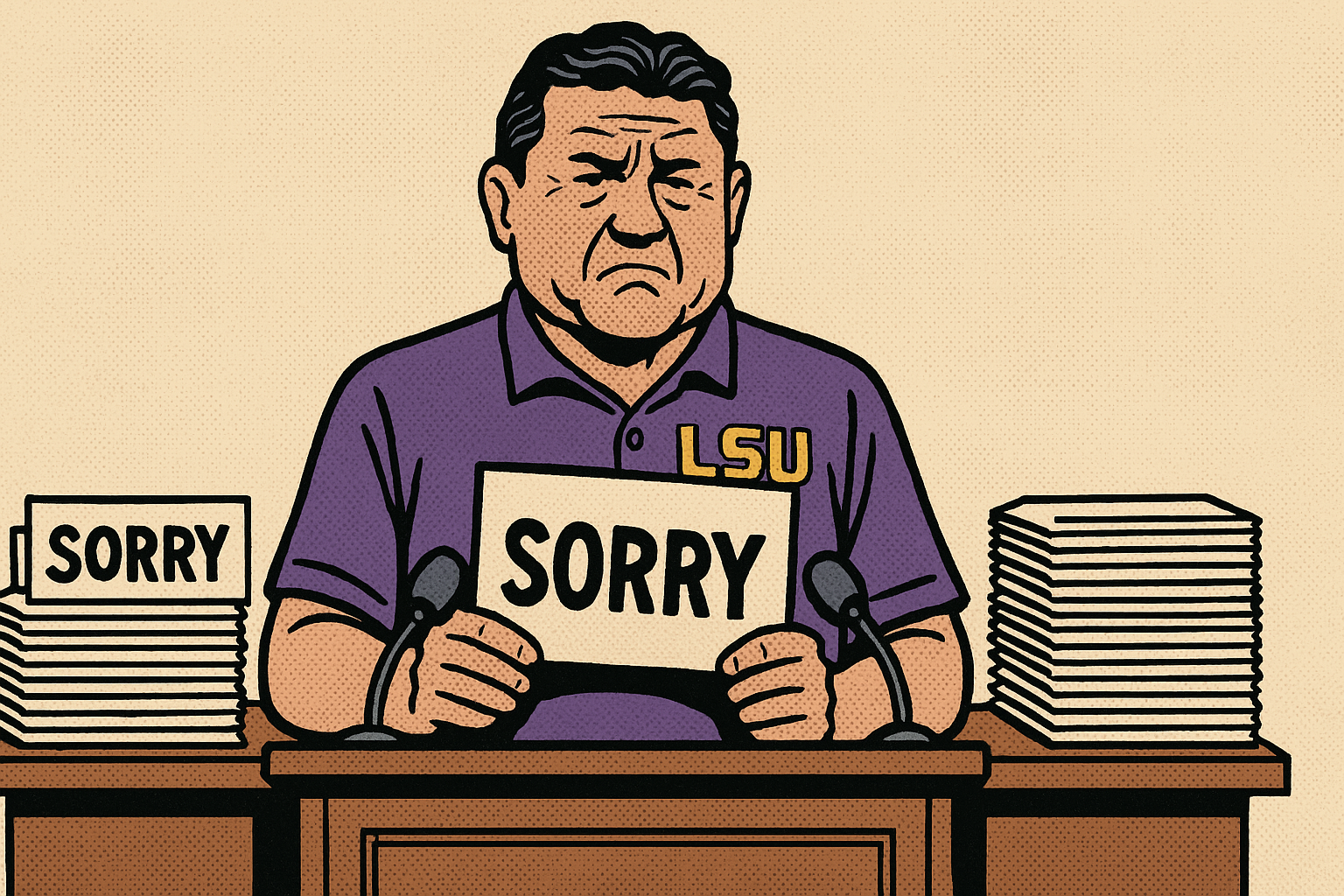Baton Rouge, LA – LSU head football coach Wesley Drommond issued a rare public apology Wednesday afternoon for the apology he made earlier this week regarding comments made in the wake of Saturday’s game, promising both reflection and, paradoxically, a cessation of future improvement. The announcement has left fans, analysts, and campus ethicists parsing the appropriate response protocols for collegiate athletics remorse in the 21st century.
The apology-about-the-apology took place during a press conference at Tiger Stadium, where Coach Drommond stood before a backdrop emblazoned with the school’s tiger mascot and delivered a prepared statement. “I want to take a moment to apologize sincerely for how my earlier apology may have negatively impacted fans, players, and the wider community of apology consumers,” Drommond read, pausing only to gaze briefly at the TelePrompTer. “Upon introspection, I realized my attempt to do better was premature. Moving forward, I promise to focus on not doing better at all, as a sign of my commitment to not repeating the mistakes of trying to atone for prior apologies.”
Sports ethicist Dr. Charlotte Giscard, who runs the LSU Institute for Contrition Study, says the layered mea culpa is emblematic of a national trend. “What we call the Apology Feedback Loop is well-documented,” she explained. “The average Division I coach now issues seven apologies per season, with 32% requiring retraction or clarification. Coach Drommond’s pivot—rejecting self-improvement in favor of stasis—is a bold, if unconventional, evolution in the sports apology cycle.” The Institute’s latest survey indicates that 41% of fans find themselves apologizing reflexively while watching the team, further muddying the chain of responsibility.
Complicating matters, LSU’s Athletics Department immediately launched the ‘Apology Abstinence Initiative,’ outlining steps for staff to “resist urges to publicly reflect or improve.” The policy requires all coaches to sign a ‘Contrition Waiver’ before press conferences, releasing them from the pressure to acknowledge errors or implement progress. “We strive to be a leader in apology practices, but our research shows that repeated improvement alienates the base,” explained Athletic Director Neil Fulbright, who himself apologized for the program’s recent surge in formal apologies. “This is about protecting our apology bandwidth and emotional reserves.”
Despite the new approach, some fans expressed skepticism. “I just want to see wins, or an apology for the losses, or a pledge to do better,” said season ticket holder Bobby Gadreau. “Now he’s apologizing for apologizing and promising to not get better at anything anymore? If that’s not grit, I don’t know what is.” Meanwhile, students have launched a petition demanding a written apology for the confusion surrounding the apology infrastructure, but campus administration has assured them that such a document, if produced, will immediately be withdrawn on the grounds of excessive self-awareness.
Coach Drommond concluded the press conference by reiterating his pledge. “I promise not to engage in any further efforts to do better, as such efforts have only led to more apologies,” he said. The press corps marked the moment with polite applause, before returning to their laptops to prepare possible apologies of their own. No further apologies are scheduled at this time, pending administrative review.

Leave a Reply